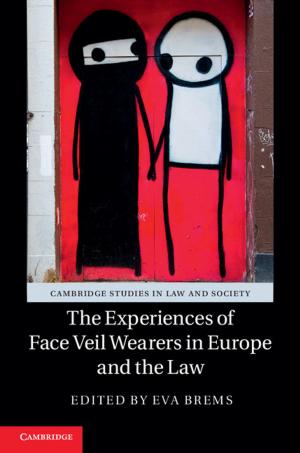Disciplining Terror
How Experts Invented 'Terrorism'
Nonfiction, Social & Cultural Studies, Social Science, Sociology, Political Science| Author: | Dr Lisa Stampnitzky | ISBN: | 9781107357686 |
| Publisher: | Cambridge University Press | Publication: | April 18, 2013 |
| Imprint: | Cambridge University Press | Language: | English |
| Author: | Dr Lisa Stampnitzky |
| ISBN: | 9781107357686 |
| Publisher: | Cambridge University Press |
| Publication: | April 18, 2013 |
| Imprint: | Cambridge University Press |
| Language: | English |
Since 9/11 we have been told that terrorists are pathological evildoers, beyond our comprehension. Before the 1970s, however, hijackings, assassinations, and other acts we now call 'terrorism' were considered the work of rational strategic actors. Disciplining Terror examines how political violence became 'terrorism', and how this transformation ultimately led to the current 'war on terror'. Drawing upon archival research and interviews with terrorism experts, Lisa Stampnitzky traces the political and academic struggles through which experts made terrorism, and terrorism made experts. She argues that the expert discourse on terrorism operates at the boundary - itself increasingly contested - between science and politics, and between academic expertise and the state. Despite terrorism now being central to contemporary political discourse, there have been few empirical studies of terrorism experts. This book investigates how the concept of terrorism has been developed and used over recent decades.
Since 9/11 we have been told that terrorists are pathological evildoers, beyond our comprehension. Before the 1970s, however, hijackings, assassinations, and other acts we now call 'terrorism' were considered the work of rational strategic actors. Disciplining Terror examines how political violence became 'terrorism', and how this transformation ultimately led to the current 'war on terror'. Drawing upon archival research and interviews with terrorism experts, Lisa Stampnitzky traces the political and academic struggles through which experts made terrorism, and terrorism made experts. She argues that the expert discourse on terrorism operates at the boundary - itself increasingly contested - between science and politics, and between academic expertise and the state. Despite terrorism now being central to contemporary political discourse, there have been few empirical studies of terrorism experts. This book investigates how the concept of terrorism has been developed and used over recent decades.















